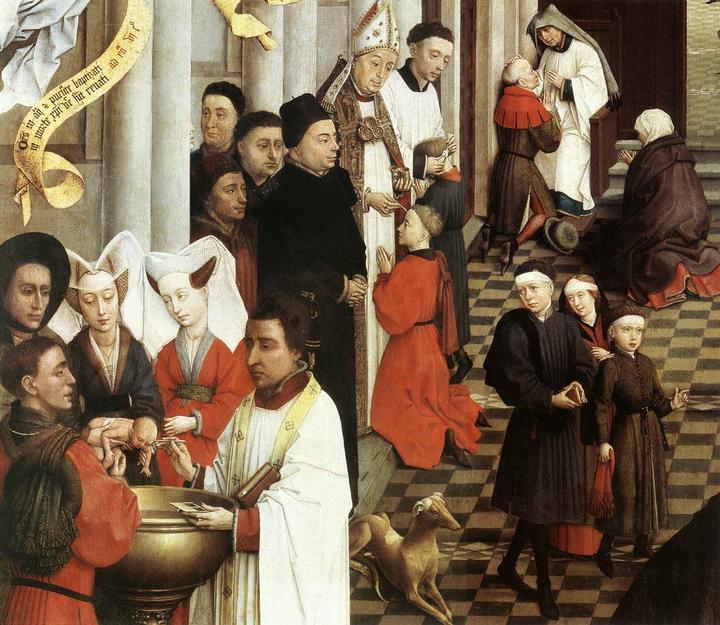Veni Creator Spiritus

Rogier van der Weyden, detail of the Seven Sacraments altarpiece (15th century)
About
From Preces Latinae:
One of the most widely used hymns in the Church, Veni, Creator Spiritus, is attributed to Rabanus Maurus (776-856). It is used at Vespers, Pentecost, Dedication of a Church, Confirmation, and Holy Orders and whenever the Holy Spirit is solemnly invoked. A partial indulgence is granted to the faithful who recite it. A plenary indulgence is granted if it is recited on January 1st or on the feast of Pentecost.1
From the Catholic Encyclopedia:
The “most famous of hymns” (Frere), is assigned in the Roman Breviary to Vespers (I and II) and Terce of Pentecost and throughout the octave. The Church also sings it at such solemn functions as the election of popes, the consecration of bishops, the ordination of priests, the dedication of churches, the celebration of synods or councils, the coronation of kings, etc. It is also sung in the more private devotions attending the opening and closing of that scholastic year in institutions of learning…There are about sixty English versions.2
Text of the Veni Creator Spiritus
Veni, creator Spiritus,
mentes tuorum visita,
imple superna gratia,
quae tu creasti, pectora.
Qui diceris Paraclitus,
donum Dei altissimi,
fons vivus, ignis, caritas,
et spiritalis unctio.
Tu septiformis munere,
dextrae Dei tu digitus,
tu rite promissum Patris,
sermone ditans guttura.
Accende lumen sensibus,
infunde amorem cordibus,
infirma nostri corporis
virtute firmans perpeti.
Hostem repellas longius
pacemque dones protinus;
ductore sic te praevio
vitemus omne noxium.
Per te sciamus da Patrem
noscamus atque Filium,
te utriusque Spiritum
credamus omni tempore.
Sources
Martin, Michael, “Veni, Creator Spiritus,” Preces Latinae, https://www.preces-latinae.org/thesaurus/Hymni/VeniCreator.html. ↩︎
Henry, Hugh. “Veni Creator Spiritus.” In The Catholic Encyclopedia. New York: Robert Appleton Company, 1912. https://www.newadvent.org/cathen/15341a.htm. ↩︎